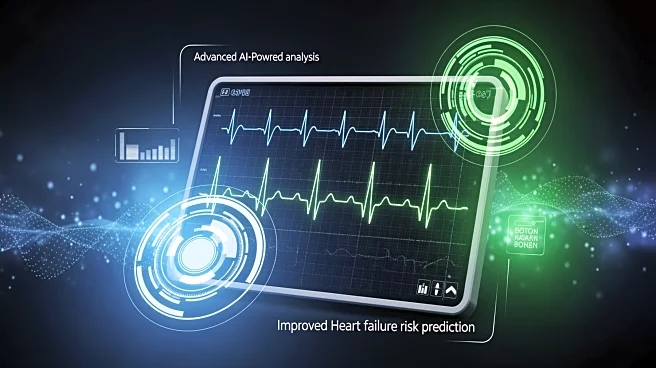What's Happening?
Anumana has presented new clinical data at the American Heart Association (AHA) Scientific Sessions 2025, demonstrating the impact of AI-driven ECG analysis on heart failure risk assessment. The study
showed that integrating AI with traditional risk models significantly improved short-term heart failure prediction, reclassifying individuals into higher-risk categories. The findings suggest that AI can detect early cardiac dysfunction, allowing for preventive interventions.
Why It's Important?
Heart failure is a leading cause of morbidity and mortality, and early detection is crucial for effective management. Anumana's AI-driven approach offers a powerful tool for identifying at-risk patients before symptoms appear, potentially improving outcomes through timely interventions. This advancement could transform cardiovascular care by enabling more personalized and proactive treatment strategies.
What's Next?
Anumana plans to further validate its AI algorithms and explore their application in other cardiovascular conditions. Collaboration with healthcare providers and researchers may enhance the integration of AI into clinical practice. Regulatory approval and reimbursement strategies will be key to expanding access to AI-driven diagnostics.
Beyond the Headlines
The use of AI in healthcare raises ethical considerations regarding data privacy and algorithm transparency. Ensuring equitable access to AI-driven diagnostics and addressing potential biases in AI models will be crucial for maximizing their benefits and minimizing risks.








